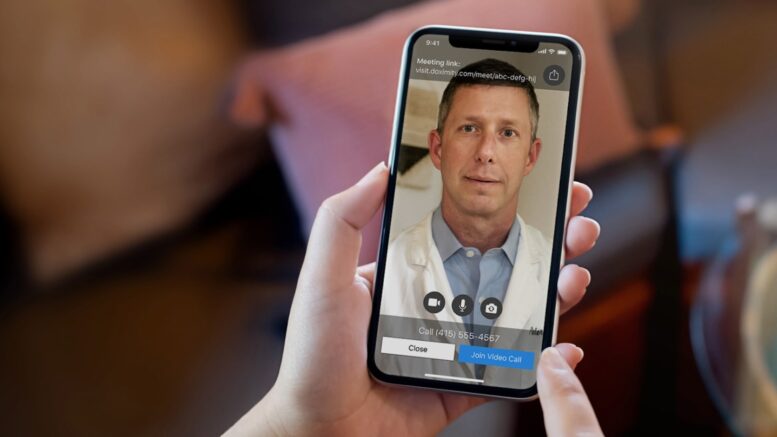In an era marked by technological leaps and societal changes, the field of addiction treatment has witnessed a remarkable transformation. The convergence of mental health needs and digital innovation has given rise to teletherapy and digital mental health solutions. This paradigm shift is revolutionizing the way addiction treatment is delivered, making it more accessible, convenient, and effective than ever before.
The Rise of Teletherapy: Bridging Gaps in Access
Statistics underscore the pressing need for accessible mental health services. According to the Substance Abuse and Mental Health Services Administration (SAMHSA), nearly 20 million adults in the United States grappled with a substance use disorder in 2020 alone. Yet, only a fraction of those individuals received treatment. This treatment gap stems from various factors, including limited access to qualified therapists, stigma associated with seeking help, and geographical barriers.
Here, teletherapy emerges as a potent solution. Leveraging digital platforms, teletherapy eliminates geographical limitations and enables individuals to receive evidence-based treatment from licensed professionals regardless of their physical location. A study published in the Journal of Substance Abuse Treatment revealed that teletherapy has been associated with higher treatment retention rates, making it a promising avenue for increasing access to addiction treatment.
The Technological Backbone: Powering Digital Mental Health Solutions
Digital mental health solutions encompass more than just teletherapy. The landscape has expanded to include mobile applications, web-based interventions, and virtual support communities. These solutions are bolstered by cutting-edge technologies like artificial intelligence, machine learning, and data analytics.
Consider the case of personalized treatment plans. By analyzing vast datasets, algorithms can now predict an individual’s response to different therapeutic approaches. This data-driven approach enhances the likelihood of successful outcomes and optimizes treatment plans, as evidenced by a study in the Journal of Medical Internet Research.
The Human Connection in a Digital Realm: Benefits and Challenges
While technology serves as an enabler, the heart of addiction treatment remains the human connection. The rapport between therapist and client plays a pivotal role in the recovery journey. Skeptics of teletherapy express concerns about the potential loss of this vital connection in a digital setting.
However, studies have shown that teletherapy, integrating AI at Work, can establish and maintain a strong therapeutic alliance. Research published in the Journal of Telemedicine and Telecare indicates that clients often find it easier to open up about their struggles through digital communication, leading to a deeper level of engagement. Furthermore, the gamut of communication tools available in teletherapy—video calls, instant messaging, and even virtual reality—allows therapists to tailor their approach to each client’s preferences and needs.

Hurdles on the Digital Frontier: Privacy and Equity
As the digital mental health landscape burgeons, it brings to the forefront critical concerns about privacy and equity. The sensitive nature of addiction treatment calls for stringent privacy measures to safeguard patient information. Regulatory bodies like the Health Insurance Portability and Accountability Act (HIPAA) have responded by establishing guidelines for the secure transmission of electronic health information.
Equity, however, remains an ongoing challenge. While digital solutions hold the promise of democratizing mental health care, they can inadvertently exacerbate existing disparities. Not everyone has equal access to high-speed internet or smartphones, effectively cutting off marginalized populations from the benefits of digital mental health resources. Addressing this gap requires a concerted effort from policymakers, service providers, and technology companies alike.
The Way Forward: Integrating Tradition and Innovation
The evolution of teletherapy and digital mental health solutions does not entail a complete departure from traditional treatment modalities. Instead, it calls for a harmonious integration of proven methodologies with groundbreaking technologies. Hybrid models, blending in-person sessions with virtual support, have gained traction for their ability to offer flexibility while preserving the crucial human touch.
Furthermore, the role of data in shaping treatment outcomes cannot be underestimated. The collection and analysis of user data within ethical boundaries can lead to continuous improvements in digital interventions. This iterative process, guided by evidence-based practices, paves the way for a new era of addiction treatment that is both responsive and adaptive.
Conclusion
The addiction treatment landscape is undergoing a profound transformation, catalyzed by the evolution of teletherapy and digital mental health solutions. The statistics underscore the urgent need for accessible treatment options, and technology is rising to the occasion. Teletherapy is bridging gaps in access and fostering strong therapeutic alliances, while digital solutions powered by advanced technologies are refining personalized treatment plans. However, privacy and equity concerns must be navigated diligently.
As we move forward, the challenge lies in striking a balance between tradition and innovation. The fusion of time-tested therapeutic approaches with cutting-edge tools holds the key to an addiction treatment future that is holistic, inclusive, and effective. The evolution is ongoing, and its trajectory is poised to shape the future of addiction treatment in ways we are only beginning to comprehend.
